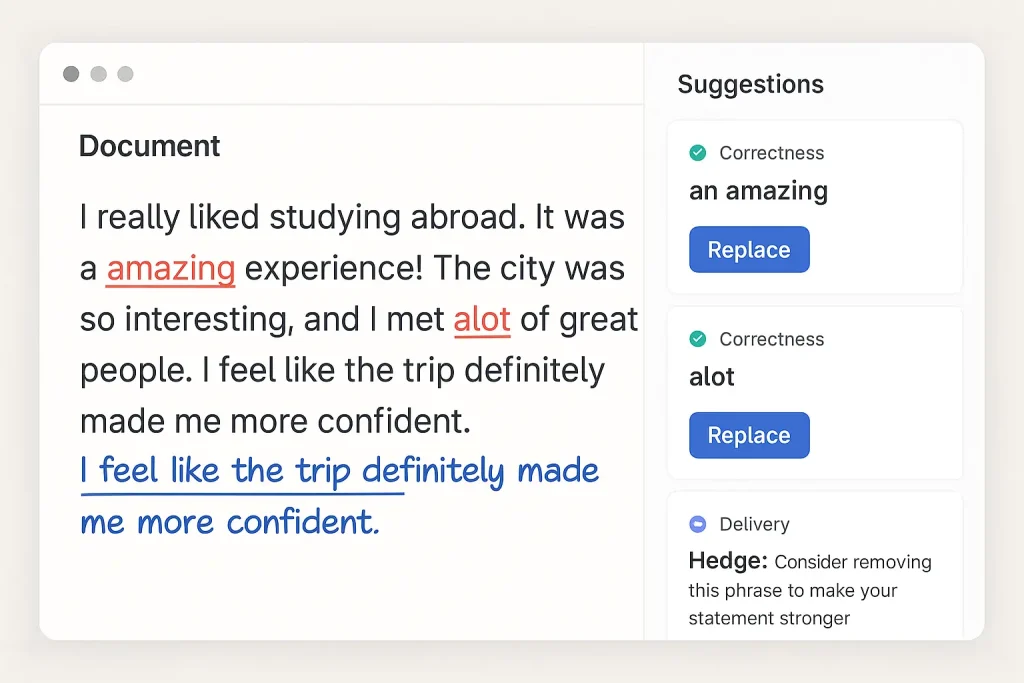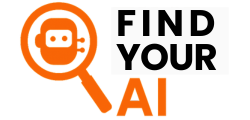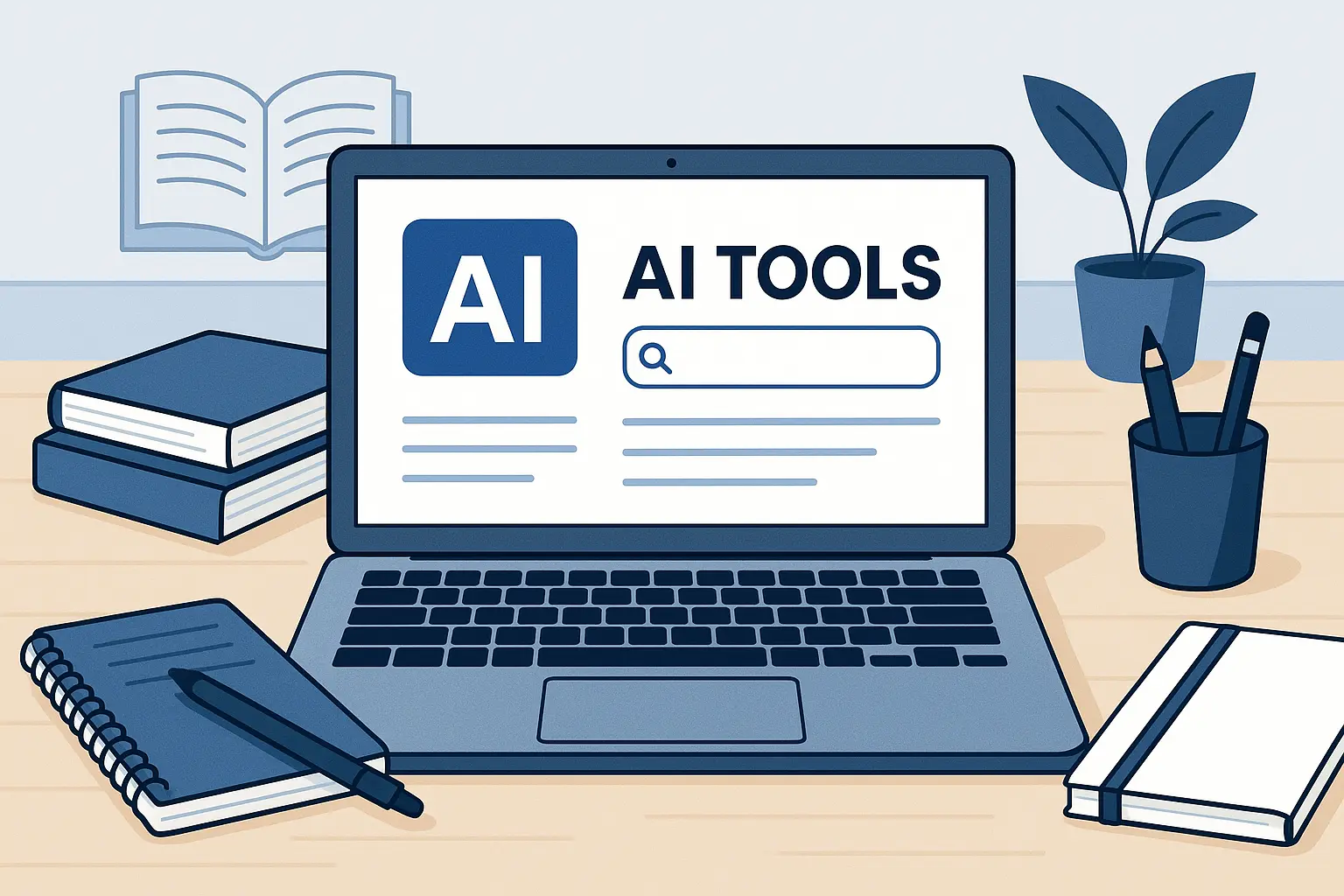Top 15 AI Tools for Students in 2025: Boost Learning & Productivity

AI has moved from science fiction into everyday student life — fast. Whether you’re organizing your class notes with smart apps or generating first drafts for essays, artificial intelligence is becoming a reliable academic sidekick.
But with so many options available, it’s easy to get overwhelmed. From writing assistants like Grammarly and Quillbot, to study-specific tools like Perplexity AI and Khanmigo, each serves a different purpose — and not all are created equal.
In this guide, we’ll break down the top AI tools for students in 2025, show you what each is best for, and help you pick the right one for your academic style, goals, and needs. Whether you’re in high school, college, or grad school, there’s a smart assistant out there that can actually make learning easier — not just more complicated.
🎯 Primary Keyword: Which AI Tool is Best for Students
💬 Semantic Variations: best AI for schoolwork, AI learning apps, study AI tools, AI apps for college students
Understanding the Role of AI in Modern Education
Artificial Intelligence in education isn’t just about automation — it’s about augmentation. The best AI tools today don’t replace student effort, they support it. They personalize learning, streamline productivity, and help students spend less time stuck and more time making progress.
🚀 How Did We Get Here?
It started with basic grammar checkers and auto-suggest. Fast forward to now, and we’ve got Generative AI that can brainstorm ideas, explain complex topics, and even act as a tutor. Large Language Models (LLMs) like GPT-4 have reshaped how students interact with content — not passively, but actively.
🔍 Why Students Are Leaning on AI
- Productivity Boost: AI planners like Notion AI organize your day based on your class schedule, assignments, and even your energy levels.
- Clarity on Demand: Stuck on a concept in calculus? Ask ChatGPT to explain it like you’re 12, and it probably will.
- Faster Research: Tools like Perplexity AI or Elicit scan academic papers and summarize key findings — in seconds.
Real-World Example:
A second-year biology major uses Otter.ai to transcribe lectures in real-time. After class, she reviews the key points extracted by the AI and syncs them with her Notion workspace for test prep.
⚠️ But Not Without Concerns
It’s not all smooth sailing. Over-reliance on AI for tasks like writing essays can create ethical gray areas. Students must strike a balance between using AI as a helper versus a shortcut. Schools are also beginning to introduce AI usage policies to preserve academic integrity.
Semantic Keywords Integrated: AI learning tools, personalized study apps, student productivity AI, generative AI in education
Criteria for Evaluating AI Tools for Students
Before we dive into the top tools, let’s talk about how to evaluate them. Not every AI tool is designed with the same student in mind. What works for a liberal arts student writing essays may not help an engineering major solving differential equations.
Here’s what to consider when choosing the right AI app for schoolwork:
📋 1. Functionality
Does the tool actually solve a problem you have?
- If you’re constantly proofreading essays, Grammarly or Quillbot might be your go-to.
- If you need help understanding topics fast, tools like ChatGPT or Khanmigo are worth exploring.
- For planning and managing deadlines, AI-enhanced productivity apps like Notion AI or ClickUp shine.
😌 2. Ease of Use
User experience matters. The best AI apps are intuitive and don’t require a tech background to figure out.
A cluttered interface or steep learning curve can kill the momentum of studying. Look for tools with simple dashboards, browser plugins, or mobile apps that fit your workflow.
🔌 3. Integration Capabilities
A great AI tool plays well with others. Does it sync with your calendar? Can you link it with Google Docs or Canvas?
For example, Otter.ai integrates with Zoom, making it a lifesaver for remote learners who want accurate lecture transcripts.
💸 4. Cost and Freemium Options
Many students are on tight budgets, so pricing is key. Most tools offer free versions with limited features, while some like ChatGPT offer student discounts on premium plans (e.g., OpenAI’s ChatGPT Plus or Google One AI Premium for college students).
🔁 5. Updates and Support
Educational tech evolves fast. You want a tool that’s constantly improving and offering responsive customer support if something breaks mid-project.
Top AI Tools for Students in 2025
Now let’s get into the real question: Which AI tools are actually worth using as a student in 2025?
We’ve categorized them based on use case — from writing, to organizing, to researching.
✍️ A. Writing and Editing Assistants
These tools help you polish papers, paraphrase sources, and improve clarity.
Grammarly
- Best For: Editing, grammar, clarity
- Why It Stands Out: Real-time suggestions, tone adjustments, and plagiarism checks
- Use Case: Final-year law student writing legal analysis papers

Quillbot
- Best For: Paraphrasing and summarizing
- Why It Stands Out: Paraphrase multiple tones (e.g., formal, simple, creative)
- Use Case: ESL students rewriting complex text for better understanding
ChatGPT
- Best For: Brainstorming, idea generation, explaining concepts
- Why It Stands Out: Interactive Q&A, can adapt tone and style
- Use Case: Liberal arts undergrad mapping out thesis arguments
🔍 Semantic Keywords Used: AI writing tool for students, student grammar apps, academic writing assistants
🗒️ B. Note-Taking and Organization Tools
AI isn’t just about writing — it’s a game-changer for staying organized and retaining information. These tools help students capture, categorize, and recall material more efficiently.
Otter.ai
- Best For: Live transcription and searchable notes
- Why It Stands Out: Converts lectures into searchable transcripts with speaker identification
- Use Case: A nursing student uses Otter during clinical lectures to quickly review procedures discussed in class.
Notion AI
- Best For: Centralizing study notes, tasks, and project management
- Why It Stands Out: Blends AI with productivity—generate summaries, create task lists, and manage content all in one place
- Use Case: A computer science student uses Notion AI to organize coding tutorials, project deadlines, and revision schedules.

🔍 Semantic Keywords: student note-taking AI, smart study planner, AI for school organization
🔬 C. Research and Study Aids
Whether you’re writing a term paper or preparing for exams, these tools streamline the research process and make studying smarter, not harder.
Perplexity AI
- Best For: Fast research with cited answers
- Why It Stands Out: Gives you reliable, sourced responses rather than guessing
- Use Case: A psychology student uses Perplexity to pull citations and summaries for literature reviews.

Elicit
- Best For: Academic research and summarizing studies
- Why It Stands Out: Searches and organizes research papers by question, not just keywords
- Use Case: A grad student preparing a thesis in environmental science uses Elicit to narrow down relevant peer-reviewed papers.
Wolfram Alpha
- Best For: Solving STEM problems with step-by-step explanations
- Why It Stands Out: Computes everything from calculus to physics to statistics
- Use Case: An engineering major uses it to break down complex integrals and plot functions for assignments.
🔍 Semantic Keywords: AI research tool for students, study help AI, computational AI for students
📅 D. Productivity and Planning Tools
Deadlines. Group projects. Finals. Life. These AI-powered tools help students stay on top of it all.
ClickUp
- Best For: Managing tasks, setting academic goals, visualizing workload
- Why It Stands Out: Combines AI, task boards, and scheduling into one workspace
- Use Case: A business student maps out weekly coursework, exam prep, and extracurriculars using ClickUp’s goal-setting features.
Canva with Magic Studio
- Best For: Creating AI-assisted visual content (presentations, infographics)
- Why It Stands Out: New “Magic” tools assist with layout, content generation, and design tips
- Use Case: A communications major builds an academic pitch deck using Canva’s AI slide generator.
🔍 Semantic Keywords: AI productivity for students, academic planner tools, AI visual presentation creator
🌍 E. Specialized Learning Platforms
Some AI tools are tailored to subject-specific learning — especially language acquisition and adaptive learning support.
Duolingo
- Best For: Gamified language learning
- Why It Stands Out: Uses AI to personalize vocabulary drills, pronunciation, and grammar paths
- Use Case: A student studying abroad uses Duolingo daily to improve conversational Spanish skills.
Khan Academy with Khanmigo
- Best For: AI tutoring in core subjects like math, science, and history
- Why It Stands Out: Khanmigo offers personalized help based on your responses
- Use Case: A high school sophomore uses Khanmigo to get guided explanations for algebra problems and U.S. history essays.
🔍 Semantic Keywords: AI language learning tool, AI-powered tutoring, personalized study platforms
Comparative Table of Top AI Tools for Students
| Tool | Best For | Key Features | Free Plan Available? | Ideal User Type |
|---|---|---|---|---|
| Grammarly | Editing & grammar checking | Tone detection, clarity suggestions, plagiarism | ✅ Yes | Essay writers, content editors |
| Quillbot | Paraphrasing & summarizing | Style customization, summarizer | ✅ Yes | ESL learners, rewriters |
| ChatGPT | Brainstorming & explanations | Natural Q&A, idea generation | ✅ (Free & Plus) | All-around academic helper |
| Otter.ai | Note-taking & transcription | Real-time recording, speaker detection | ✅ Yes | Lecture-heavy courses |
| Notion AI | Organization & task tracking | Task automation, note summaries | ✅ Yes | Students managing projects |
| Perplexity AI | Research & citations | Sources included, simple UI | ✅ Yes | Research-heavy majors |
| Elicit | Academic research aid | Peer-reviewed filtering, AI-assisted queries | ✅ Yes | Grad-level researchers |
| Wolfram Alpha | STEM problem solving | Step-by-step math, science computation | ✅ Limited | Engineering, math students |
| ClickUp | Productivity & planning | AI task tracking, Gantt charts | ✅ Yes | Multi-project jugglers |
| Canva (Magic) | Visual content creation | AI design tools, templates | ✅ Yes | Arts, marketing, presentations |
| Duolingo | Language learning | Adaptive gamified lessons | ✅ Yes | Language learners |
| Khanmigo | AI tutoring | Personalized academic guidance | ✅ Yes | High school, undergrad |

🧠 Pro Tip: Don’t just go for the most popular tool. Match the tool to the type of tasks you spend the most time on.
How to Choose the Right AI Tool Based on Your Needs
Still unsure which one to pick? Here’s how to narrow it down based on your academic profile and intent:
🎓 Based on Field of Study
- STEM majors: Wolfram Alpha, Khanmigo, Notion AI
- Humanities students: Grammarly, ChatGPT, Quillbot
- Business students: ClickUp, Perplexity AI, Canva
- Language learners: Duolingo, ChatGPT (with translation prompts)
🧩 Based on Learning Style
- Visual learners: Canva, Notion, Khan Academy
- Auditory learners: Otter.ai, Khanmigo (interactive explanations)
- Hands-on learners: ChatGPT (interactive Q&A), ClickUp (project-based learning)
⏱️ Based on Time Management Needs
- Need help staying organized? → ClickUp or Notion AI
- Want to save time on notes? → Otter.ai
- Prefer quick research? → Perplexity AI or Elicit
🔍 Semantic keywords: best AI for college students, choosing AI apps for studying, academic AI decision guide
VII. Ethical Considerations and Academic Integrity
As powerful as these tools are, using them responsibly is crucial — especially in academic settings where originality and independent thinking still matter.
⚖️ What’s Okay:
- Using AI to summarize, brainstorm, or rephrase in your own words
- Leveraging tools for planning, note-taking, and research shortcuts
🚫 What’s Not Okay:
- Submitting fully AI-generated essays without edits
- Using AI to answer tests, quizzes, or plagiarize research papers
- Relying on AI without understanding the content
🎓 How Schools Are Responding
Many universities are rolling out AI usage policies — similar to plagiarism policies. Some professors even use AI detectors to flag overuse. It’s a fine line between learning with AI and outsourcing your education to it.
💡 Tip: Treat AI like a tutor — not a ghostwriter.
Conclusion: So, Which AI Tool Is Best for Students?
There’s no one-size-fits-all answer — and that’s the beauty of it. The best AI tool for students depends on your goals, your workload, and how you like to learn.
- Want better writing? → Start with Grammarly or Quillbot
- Need help staying organized? → Notion AI or ClickUp have your back
- Struggling with research? → Try Perplexity AI or Elicit
- Looking for academic guidance? → Don’t overlook Khanmigo or ChatGPT
The smartest approach is to mix and match tools to build your own academic “AI stack” — one that actually enhances your learning without replacing it.
🔑 Final Takeaway: AI is a powerful partner in your education. Use it to think sharper, work faster, and study smarter — not to skip the process.
Final Tips for Using AI Tools Effectively
- 🔄 Cross-check AI outputs with reliable sources — especially for academic research
- ✍️ Use AI to draft, but make sure your voice and insights shine through
- 🧭 Set clear boundaries — AI can do a lot, but it shouldn’t do everything
- 🧠 Keep learning how AI works so you use it intentionally, not blindly
Frequently Asked Questions (FAQs)
❓ What is the best free AI tool for students?
Grammarly Free, ChatGPT Free, Otter.ai, and Perplexity AI offer robust features without needing a paid plan.
❓ Are AI tools allowed in college or high school?
It depends on your institution. Many schools are creating AI use policies, so always check your syllabus or ask your instructor before using AI on assignments.
❓ Can AI tools help students with ADHD or learning disabilities?
Yes! Tools like Notion AI, ClickUp, and Otter.ai help with structure, focus, and recall — making them popular with neurodiverse learners.
❓ Will using AI hurt my learning?
Only if you over-rely on it. The best use of AI is as a thinking partner, not a crutch. Use it to understand, not just complete, your work.




